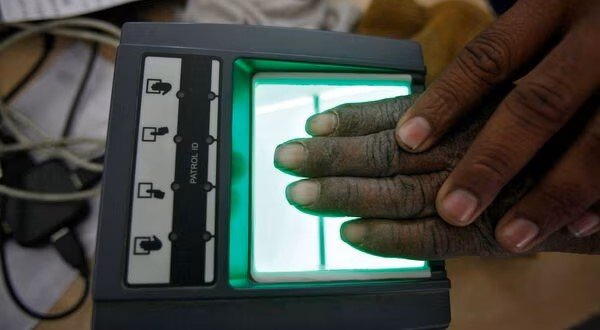In response to recent concerns raised by Moody’s Investors Service regarding the reliability of India’s Aadhaar system, the Unique Identification Authority of India (UIDAI) and the Ministry of Electronics & IT have strongly defended the country’s ambitious biometric identification program.
Moody’s had voiced doubts about Aadhaar’s effectiveness in India’s hot and humid climate and its impact on service denials, raising questions about security and privacy safeguards. Here’s how the Indian authorities have responded to these allegations:
UIDAI Refutes Allegations:
UIDAI emphatically refuted Moody’s assertions, highlighting the absence of concrete evidence to support the claims. The agency pointed out that over a billion Indians have successfully used Aadhaar for authentication over 100 billion times in the past decade.
“The investor service did not make any attempt to ascertain facts regarding the issues raised by it from the Authority,” the UIDAI stated.
Biometric Technology and Security:
Both UIDAI and the Narendra Modi government underscored that Aadhaar employs multiple authentication methods, including facial and iris recognition, in addition to fingerprinting. They also noted the availability of one-time passwords (OTP) via mobile phones, providing a fail-safe mechanism.
Ministry of Electronics & IT’s Response:
The Ministry of Electronics & IT expressed its dissatisfaction with Moody’s report, citing a lack of substantiated opinions with primary or secondary data. It pointed out that Aadhaar enjoys the trust of over a billion Indians and has received positive evaluations from international agencies like the IMF and World Bank.
Addressing Centralization Concerns:
Regarding concerns about centralization, UIDAI and the Ministry emphasized that there have been no reported breaches of the Aadhaar database to date. They stressed that Aadhaar’s architecture incorporates state-of-the-art security measures and complies with global security and privacy standards, including ISO 27001:2013 and ISO 27701:2019.
Aadhaar’s Role in Financial Inclusion:
The government also cited a recent G20 Global Partnership for Financial Inclusion (GPFI) report, highlighting how Aadhaar, along with Jan Dhan bank accounts and mobile phones, has significantly increased the ownership of transaction accounts among Indian adults, expediting a process that could have otherwise taken nearly half a century.
In summary, both UIDAI and the Ministry of Electronics & IT consider the criticisms raised by Moody’s to be “baseless.” They maintain that Aadhaar is a highly secure and reliable system, a stance supported by a vast number of Indians and acknowledged by global institutions.
News Summary:
- Moody’s concerns about Aadhaar’s reliability in India’s climate and its impact on service denials have been refuted by UIDAI and the Ministry of Electronics & IT.
- UIDAI emphasized the lack of concrete evidence supporting Moody’s claims and highlighted the widespread use of Aadhaar for authentication.
- The Indian government stressed the multiple authentication methods and security measures in place within the Aadhaar system.
- The Ministry of Electronics & IT cited the trust of over a billion Indians and positive evaluations from international agencies like the IMF and World Bank.
- Concerns about centralization were addressed with the assurance of no reported breaches in the Aadhaar database.
- Aadhaar’s role in financial inclusion was highlighted, with reference to a G20 GPFI report.


